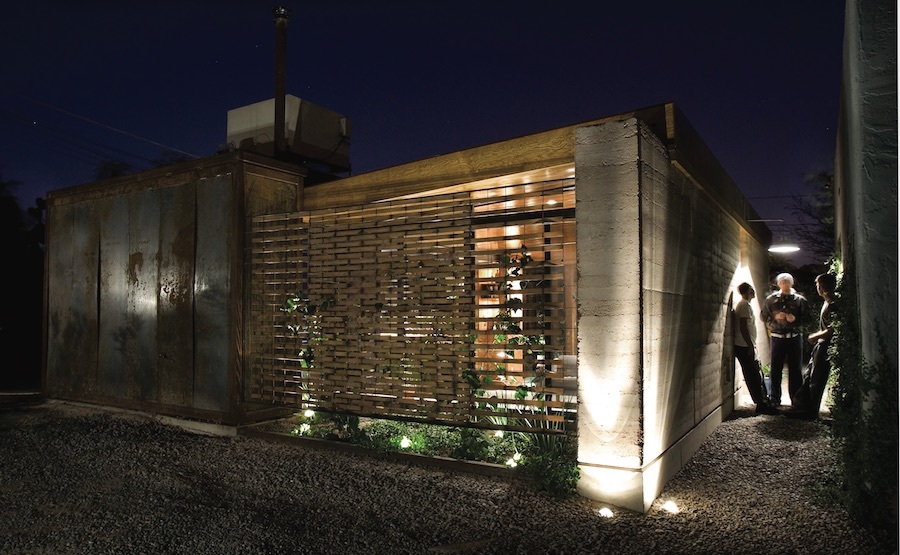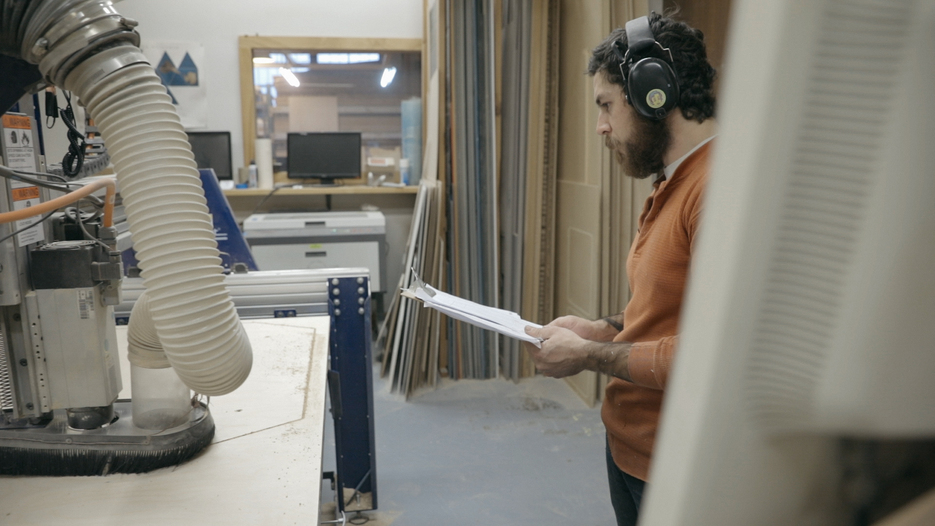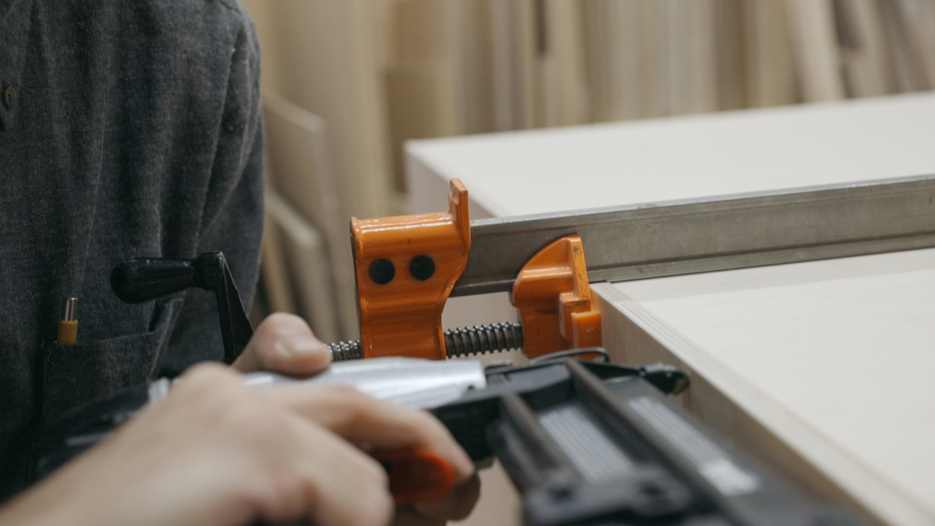Meet the Makers: Andy from Superfab
Superfab: where amazing design, old school craft and new age digital tooling come together.
We trace Andy’s story from making a house (and all its contents) in the Tucson desert with his bare hands, then pouring his heart and soul into the music–centred venue ‘Someday Lounge’, to eventually opening Superfab in the heart of Southeast Portland.


Opendesk: How did you first get interested in making?
Andy: I went to architecture school and I really thought that would be my life. But by the time I was nearly done, I knew a lot of unhappy architects and just saw a lot of compromised work out there. I was convinced at that point that for me, pursuing the calling would not involve professional practice.
Instead, for my final thesis project I designed a house in Tucson’s Sonoran desert that was sustainable, affordable and simple enough to be constructed without contractors – it was called the ‘Back 40 house’. Then after graduation, a good friend and I set out to build it. We spent a couple of years learning the trades and literally building that house and its contents with our bare hands. I was already somewhat handy, but it was my first genuine foray into truly living life as a maker. We made it up as we went and bootstrapped the whole way, but it was great.


“People don’t come here to make it big, they come here to make things they love.”
Opendesk: What came next?
Andy: Once the Back 40 house was built it was really well received and lead to other small residential and commercial projects in southern Arizona. Then before long it brought me to Portland where a some good friends had opened a café and were planning to open a bar a few doors down. It was conceived as a performance art venue called Someday Lounge, and they hired us to design it and build it out. It was a dream project to be involved in. We were (still) unabashedly full of idealism and in retrospect, really, really fortunate to be working on things we truly believed in – particularly when most of our contemporaries had been seemingly compromised into the more professional route. Of course, we worked like dogs and my partner and I had to take turns alternating between sleeping on the floor and sleeping on the couch at our buddy’s place for about seven months, but it was all very humble and perfect. It also was the foothold that led to relocating my practice to Portland.


Opendesk: When did you found Superfab?
Andy: I started Superfab four years ago on the idea that if you take design thinking and experienced hands, then combine that with new era tools (like CNC routers) good things will happen.
We started quite humbly selling CNC services and working with artists, designers and architects, all whose language we could speak. It’s grown really organically – one job leads to another, word of mouth spreads what we’re doing, or we’ll meet someone interesting from the industry who connects us to someone else.



Opendesk: What are some of the most exciting projects you’ve worked on?
Andy: We’ve had many at this point! The first was when Airbnb opened their call centre here in Portland and wanted to work with local suppliers. They found us through their architects and brought to us a concept for a new type of furniture they had conceived. We developed it together and evolved it into a system that could be deployed at different scales - whether for six people or 26. The main challenge of that job (and why it was so informative) was that it felt way bigger than anything we’d previously tried to do. We had to build for nearly 300 people, which was roughly 26 of these large pieces, and we quickly realised we had to utilise digital fabrication to the fullest. We designed all the parts to be cut by CNC and began exploring simple joinery techniques, so the fabrication became more about easy assembly.
That project was a huge part of making Superfab what it is today and also helped us to realise what we could do in terms of scale. It was certainly a hair-raising experience, but that space and our pieces both came out beautifully and it was the start of a great relationship with Airbnb – both here, in San Francisco and up the coast.



“If you take design thinking and experienced hands, then combine that with new era tools (like CNC routers) good things will happen.”
Opendesk: Tell us about Portland! Is “making” a big part of the culture there?
Andy: Portland is a lovely place: very walkable and great for riding your bike places. People moved here over a decade ago when they were trying to get away from the big cities to do their own thing and explore their interests. That’s a big part of why the making culture is so rich – people don’t come here to make it big, they come here to make things they love. There is so much knowledge and passion to tap into - you could name a material or craft skill and I could probably name three people that do that one thing really well.
Opendesk: What brought you to Opendesk?
Andy: The concept of distributed manufacturing is something we’re really interested in as a viable model for the future. I’m also inspired by the idea that designers could share great designs and not have to go through the traditional giant manufacturers to reach a new audience. It’s essentially bypassing that step in the same way I wanted to bypass the architecture profession and still make really good things! It puts all parties much closer – makers, designers and customers. I really appreciated that.
From a business perspective, I like the idea of building nice things for people locally. If this gives us more opportunity to do that, then it’s great.





